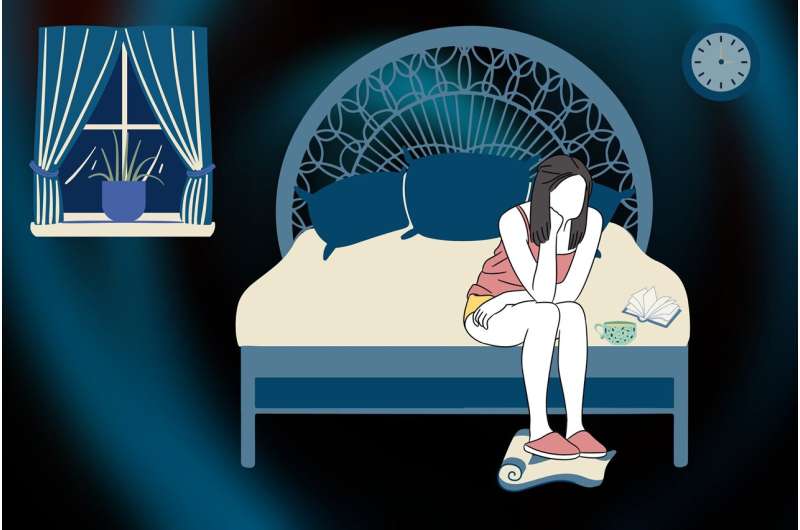Exploring the Interconnection Between Sleep Patterns and Mental Health

Discover how sleep and mental health influence each other, and explore effective strategies to improve sleep hygiene for better emotional well-being.
Many individuals experience a complex and sometimes strained relationship with sleep. We often delay bedtime for extra leisure, scroll through our phones in bed, or sacrifice sleep on weeknights, only to compensate with long weekend sleep. This cycle can negatively impact both our mood and mental well-being.
Research shows that poor sleep can directly influence mental health, with sleep deprivation contributing to mood disturbances such as depression and anxiety. Conversely, mental health issues can disrupt sleep, creating a bidirectional cycle. Leading experts, like Dr. Andrea Goldstein-Piekarski from Stanford Medicine, emphasize that sleep and mood are interconnected in a way that each affects the other.
Data from the CDC highlight that over one-third of U.S. adults and nearly 80% of teens do not get sufficient sleep, with many suffering from sleep disorders like insomnia and sleep apnea. These conditions are linked to higher rates of mental health problems, including depression and anxiety. For example, individuals with insomnia are ten times more likely to develop depression, and sleep apnea can triple these risks. In the short term, sleep deprivation impairs emotional regulation, while mental health disorders tend to aggravate sleep disturbances.
Researchers are studying how improving sleep can enhance mental health. Techniques like cognitive behavioral therapy (CBT) for insomnia have shown promising results, including brain activity and mood improvements following therapy. During the COVID-19 pandemic, virtual CBT sessions helped reduce depression by improving sleep quality.
Studies also reveal that sleep timing is crucial. Going to bed early and waking early correlates with better mental health, even for night owls. Psychologists suggest that late-night decision-making, often called 'mind after midnight,' may contribute to increased stress and poorer choices, impacting mental well-being.
Understanding whether sleep problems cause mental health issues or vice versa remains complex. Often, they reinforce each other, forming a vicious cycle that complicates treatment. In clinical practice, discerning which condition is dominant guides targeted therapeutic approaches.
Shift workers and teenagers face unique sleep challenges. Shift work often disrupts circadian rhythms and increases vulnerability to mental health issues. Adolescents, experiencing natural shifts in sleep patterns during puberty, are particularly susceptible to sleep deprivation, which has worsened mental health symptoms during the pandemic.
To promote better sleep and mental health, experts recommend maintaining consistent sleep schedules, creating a relaxing sleep environment, and avoiding stimulants or screen time before bed. For persistent problems, consulting a sleep specialist and considering treatments like CBT can be highly effective.
Ultimately, addressing sleep issues is a vital component in supporting mental health, as improving sleep hygiene can buffer against mood disorders and foster overall well-being.
source: https://medicalxpress.com/news/2025-08-bidirectional-relationship-mental-health.html
Stay Updated with Mia's Feed
Get the latest health & wellness insights delivered straight to your inbox.
Related Articles
How Stress Impairs Emotional Regulation in Individuals with Mental Health Conditions
New research reveals that acute stress can hinder brain functions responsible for emotional regulation, especially in individuals with depression, anxiety, or borderline personality disorder. Understanding these effects is key to improving mental health treatments.
The Impact of Puppy Ownership on Family Mental Health: Benefits and Challenges
A UK-based study explores the mental health benefits and challenges of puppy ownership, highlighting the emotional impact on families and the importance of responsible caregiving.
Six Ways Live Music Can Help Fight Loneliness in Society
Explore how live music fosters social connection, community bonding, and emotional well-being to help combat loneliness in society.
Link Between Socio-Environmental Factors and Suicide Risk in England
A comprehensive study reveals how social deprivation, transport networks, and environmental features influence suicide risk across England, highlighting areas for targeted prevention.



